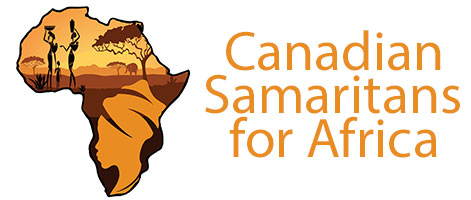Kijiji Cha Upendo Children’s Project (KCU) is a registered community based organization in Kenya, working to complement the efforts of families already providing physical and emotional support to orphans and other vulnerable children infected and affected by HIV and AIDS through a family based approach, where children receive nurturing care by loving adults within family homes.
Since inception, KCU has continued to contribute significantly to national efforts aimed at providing comprehensive care and support to women and children living with and affected by HIV and AIDS to enable them lead more wholesome lives. KCU’s vision is crafted along the Kenya National HIV/AIDS strategic plan (KNASP III) 2008-2013, which strives for a ‘Society free of HIV’. The unique feature of KCU is that it is an OVC care and support organization run by families caring for orphans in their households. Today, KCU is visible in Kibera and continues to work closely with other like-minded organizations in meeting the needs of the target population in cognizance of available limited resources.
KCU maintains a strong team of volunteers who are professionals in different fields and trained community health volunteers (CHVs) who conduct the primary role of constant client follow up. The model adopted includes monthly technical update meetings with the team to discuss emerging issues and design relevant solutions.
Mission Statement:
KCU exists to complement efforts of families already providing physical and emotional support to orphans and other vulnerable children infected and affected by HIV/ AIDS through a family- based approach, where children receive nurturing care by loving adults, within family homes.
Broad Objectives
- To improve the livelihoods of women, youth and children.
- To increase power, voice and contribution of the beneficiaries towards decision policy making.
- One on one counselling: Provided in the KCU office and in homes; one on one counselling enables guardians and older orphans to make informed decisions on issues affecting them. This further strengthens their ability to cope and live with HIV/AIDS or loss of their parents, in the case of orphans.
- Women’s empowerment meetings: These fortnight meetings provide a unique opportunity for 27 women from families caring for orphans come together and share their experience of living with orphans and their knowledge of how to manage a small business. The group sessions also provide opportunities for KCU to educate its members on coping mechanisms, thus enabling them to run businesses well and continue to live with children in a loving manner. These sessions that bring women together are a powerful tool for support and emotional empowerment. It enables them draw emotional strength and to support each other.
- Medical care: This involves referral for guardians and children to hospitals that work closely with KCU. Treatment, counseling and other essential medical services are accessed.
- Home and school visits: These services are offered to families living with orphans who are supported by KCU and are in school in Kibera. KCU’s current approach of working with community health volunteers (CHVs), has greatly improved our reach and support for children who are HIV+ and are being supported by KCU. School visits also help to gauge the children’s performance and welfare at school.
- Orphan support: This intervention constitutes a significant portion of the overall interventions at KCU, embracing about 155 children. Interventions include emotional support (pre/and post bereavement counseling, school fees support for over 155 children, guardians economic empowerment that reaches over 27 guardians yearly and community mobilization and advocacy on OVC care that reaches over 4,000 members of the public with information on OVC care in a given year.
- Livelihoods support: KCU pursues interventions that seek to improve household incomes, food security and self-esteem for clients and their families. In this regard, KCU continues to conduct workshops for women, older orphans and guardians in the skills of managing small businesses and provide them with start-up funds to enable them to initiate and run their own small businesses within their respective localities.
- Interest free micro-loans, borrowed from and repaid into a revolving micro-loan fund, enable the entrepreneurs to increase their capacity to generate income. These initiatives have empowered over 27 families economically to move significantly towards household food security.
- In addition, through the “garden in a sack” initiative, whereby women receive certified seeds and fertilizers as well as the services of agricultural extension officers to provide technical support in growing vegetables in a sack, many households are becoming self-reliant with regards to food provision for their families.
- Community Education on HIV, AIDS and Children’s Services: This intervention targets members of the public and other clusters of the population that are considered at high risk of being infected with HIV. Some of the most at risk groups that KCU currently targets includes women, widows, and youth in schools, youth out of school and older orphans. The community sensitization forums target strategic places such as government administrative open forums, churches, self-help groups and schools. The intention is to foster accelerated positive behavior change processes within communities that focuses more on most at risk groups.
- Bicycle Empowerment Centre: Since March 2014, KCU has been training youths in bicycle repair, sales and maintenance. Boys and girls out of school and the community in general acquire skills for their future livelihoods and economic well being. The Project aims to strategically place older orphans within the job market, enhancing their self-reliance and ability to support their siblings. The courses take 3 months to complete. There is a special focus here to empower girls to succeed; this initiative gives priority to girl orphans. The surplus profits from bicycle sales have been used to support other KCU activities .With no bicycles being sold now, follow up is being conducted on the trainees.
